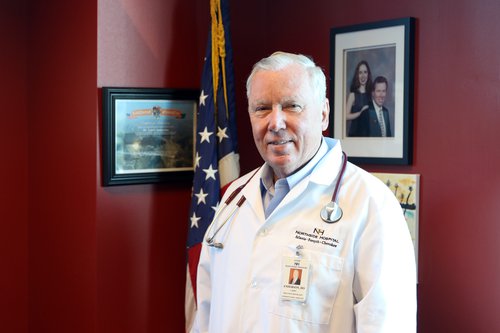We know that you need accurate and up-to-date information about the effects of the coronavirus in the state and our region. The Dawson County News is making this article available free to non-subscribers as a public service. Please consider supporting our work by subscribing to the Dawson County News.
The Georgia Department of Public Health (DPH) announced this week that it would be collaborating with state partners, including authorities in Dawson County, to prepare for the potential outbreak of Coronavirus, COVID-19.
As of Wednesday, Feb. 26, the Centers for Disease Control and Prevention (CDC) had confirmed 14 cases of COVID-19 in the United States. But so far, no cases of the virus have been reported in Georgia.
Authorities say that while the overall risk to the general public remains low, agencies are moving to identify cases across the county and reduce the virus’s spread.
“We urge Georgians to prepare for hurricanes or flooding or
take measures to prevent flu, so preparing for an outbreak of COVID-19 is no
different,” DPH Commissioner Kathleen E. Toomey said in a press release. “DPH
is working to make sure our health systems, first responders and county health
departments have the resources they need to respond to a COVID-19 outbreak.”
According to Dr. Larry W. Anderson of Anderson Family Medicine in Dawson County, COVID-19 can be avoided and treated much like the Influenza virus.

On Wednesday, Anderson explained that COVID-19 presents mild, flu-like symptoms, like low-grade temperatures, cough, sore throat, stomach distress and diarrhea.
Any individuals who have recently traveled to China, Asia, or other countries where the virus has known to have spread, should be wary of those symptoms, he said.
Though anyone is potentially susceptible to COVID-19, the young, elderly, those with an underdeveloped or already compromised immune system, those with respiratory problems, chronic obstructive pulmonary disease (COPD) and smokers may be at a more serious risk to the virus, he said.
"It's deadly because humans have not ever seen this virus before, so you're being exposed to a virus that you've never had a chance to build up anti-bodies to it, or anything similar to it," Anderson said.
Much like the common cold or flu, Anderson said that COVID-19 is spread person to person through close contact, respiratory droplets from coughs or sneezes or from contact with infected surfaces or objects, and therefore can be fought in a very similar way.
Handwashing, sanitizer, caution around public spaces and public used facilities, and avoiding handshakes, and touching the face or eyes, would all be effective ways of preventing the virus’s spread, Anderson said.
People should also stay home if they feel sick, cover their mouth and nose when coughing or sneezing, stay hydrated and get vaccinated for the flu, Anderson said.
"Do all those things that your mom told you to do to stay healthy," he said. "At this stage, we should have a heightened awareness that the virus is out there"

